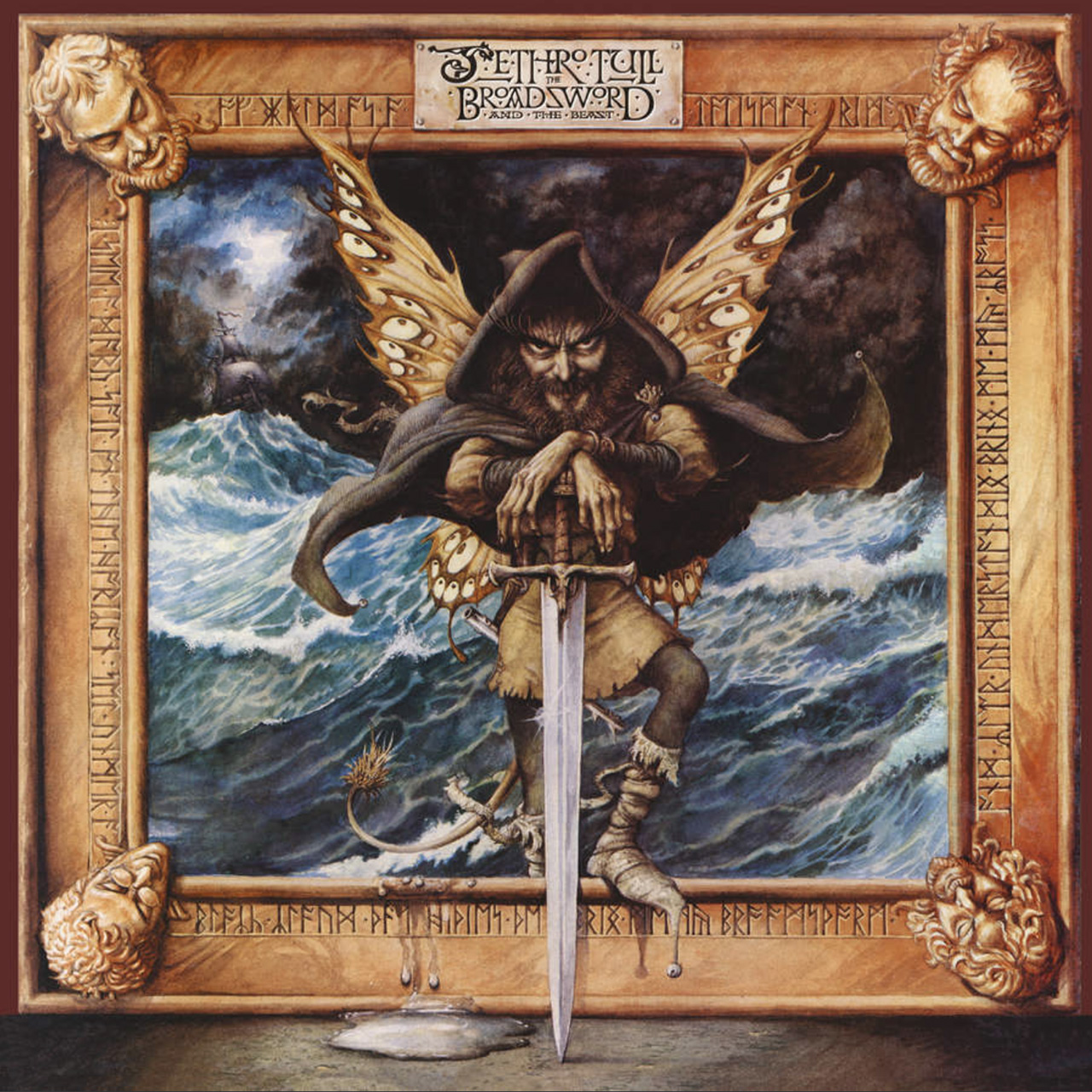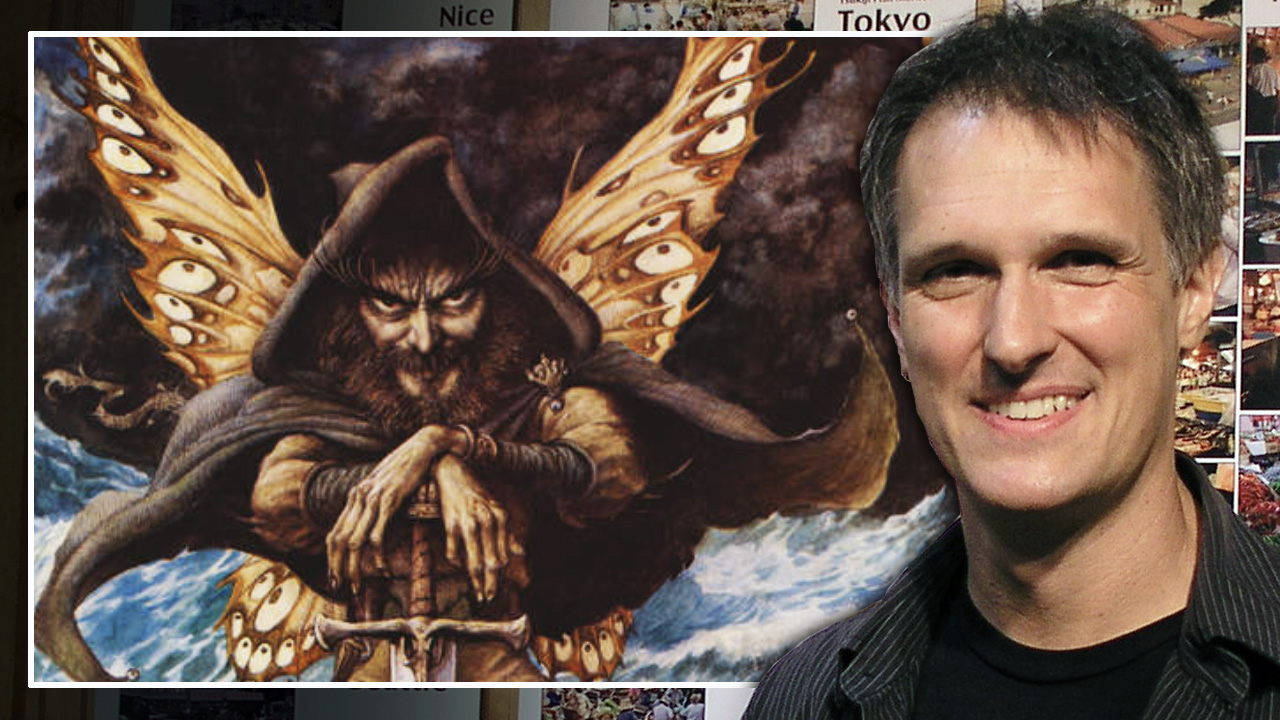When illustrator and designer Iain McCaig takes a glance down his CV, he finds no shortage of projects to be proud of. As a conceptual designer of the Star Wars franchise, and a contributor to the Harry Potter movies, Marvel’s Avengers trilogy and many others, he’s got plenty of reasons to brag. But one job that remains closer to his heart than any of those big-name gigs is his role in creating the cover art for Jethro Tull’s The Broadsword And The Beast.
That’s partly because he was a fan of the band before he got the gig. When he was given a message to call his agents and took to a payphone in London’s Charing Cross Station, he couldn’t believe who he was being asked to work for.
“When I heard ‘Jethro Tull,’ I think I yelled with delight so loud people were looking round like someone had fallen under a train,” says California-born McCaig, now based in Canada but then living in the English capital. McCaig was invited to Maison Rouge studios in Chelsea, where Ian Anderson sat him down to discuss ideas for the artwork.
Perhaps surprisingly, the artist has compared collaborating with the Tull main man to working with Steven Spielberg. How so? “Well, in the sense that he’s interested in your input, and at the end of the day he’s happy to go with the best idea, not just his ideas.”
By the end of the meeting, McCaig also had some music to absorb. “I remember listening to a demo tape version of Beastie, which at that time was also going to be the title of the album. I worked up initial sketches of this beastly creature playing pan pipes and tormenting a bard figure trying to write by candlelight. Ian immediately went for it, saying, ‘That’s our cover.’”

The illustrator heard more of the LP as it took shape in the studio: “I was allowed to listen to songs as they were being recorded, then listen back on tape. I actually remember being allowed to sketch as they were recording, in the studio, which felt like a real honour. I can’t imagine many musicians allowing that! I remember the song Broadsword and being struck by the lyrics and imagery – ‘I see a dark sail on the horizon...’ – which I don’t think had been written when I first met up with the band.”
As the would-be title track was polished up, Anderson had the idea of combining it with the titular creature of Beastie to make the album The Broadsword And The Beast, which would require McCaig to imagine a new piece to grace the sleeve. When he told Anderson of his idea for the central image of a creature – not by coincidence resembling the evil twin of the singer – resting on a sword, the man himself agreed to pose for a photo that McCaig could use to help him come up with the final image.
Did he always imagine the Tull frontman as a cartoon figure? “No, but he does have a face that lends itself to illustrating, especially this kind of character. He doesn’t have to do much to look evil!”
The final artwork incorporated frieze-style etchings in what looked like some sort of medieval language around the perimeter, with the other band members’ images immortalised at each corner. McCaig also elected to put in a few enigmatic messages of his own. He kept their meaning to himself for many years, but with little now secret in the internet age, he can confirm that they are symbols in Tolkien’s Cirth rune system, spelling out the opening lyrics to Broadsword.
“An album sleeve is the perfect canvas for an illustrator,” says McCaig, who lists prog demi-god Roger Dean as a major inspiration. Like Anderson, he has often seen the work adorning the skin of fans. “I was once at a record store and I got talking to the assistant, and said I had done some sleeves. When I mentioned Broadsword... he immediately began stripping off his shirt to show me a huge tattoo of the Beastie all the way down his arm.”
McCaig also collaborated with Tull to create a giant picture frame around the stage for the tour, with a dark-sailed ship crashing through it at the end of the show, while Anderson performed with a giant Beastie prosthetic on his shoulders, complete with flashing eyes and real bones beneath the latex.
“I was given it after the tour and I used to have it at home,” McCaig says. “For years, I kept it in my attic room and the flashing eyes still worked – it would scare the hell out of visitors! Unfortunately latex rots, and it eventually rotted down to the bones, which was even more terrifying! So eventually I had to throw it out.”

